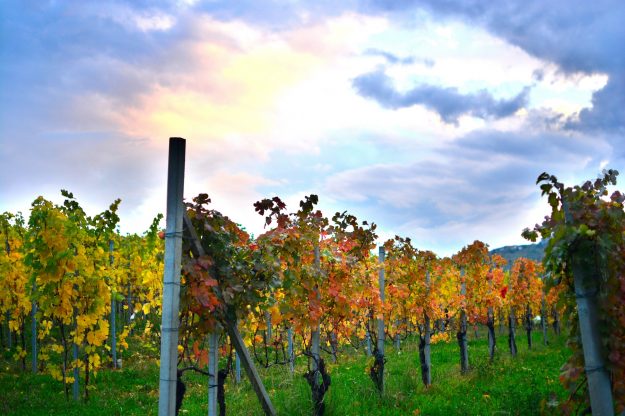

VINEYARDS
![]()

![]()
Does the quality of the wine depend on the work done in the vineyards or in the wine cellar? This question is often asked. It is difficult to understand how important one or the other is. Without a doubt, everything starts from the vineyard and its position, the search for the perfect vine that matches the soil and microclimate and of course years of experience which is better than any book.
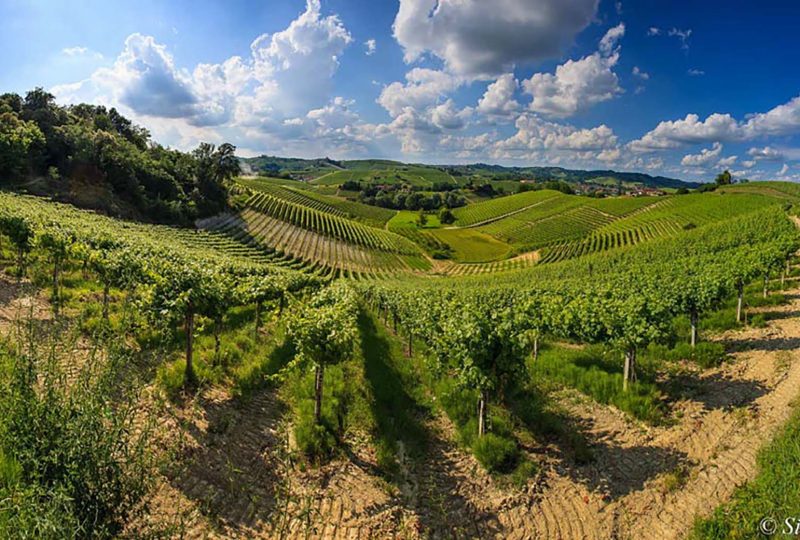
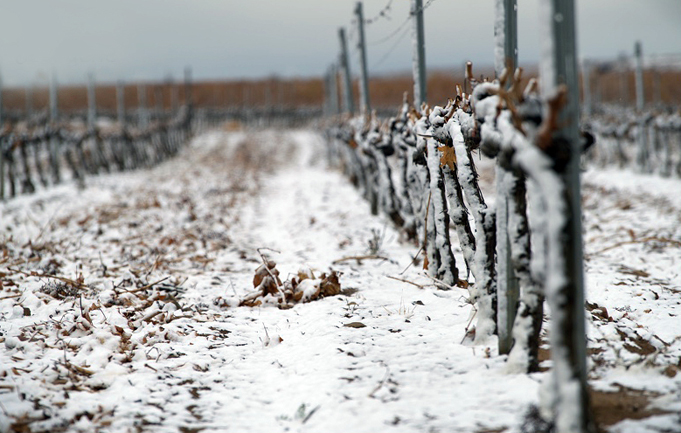
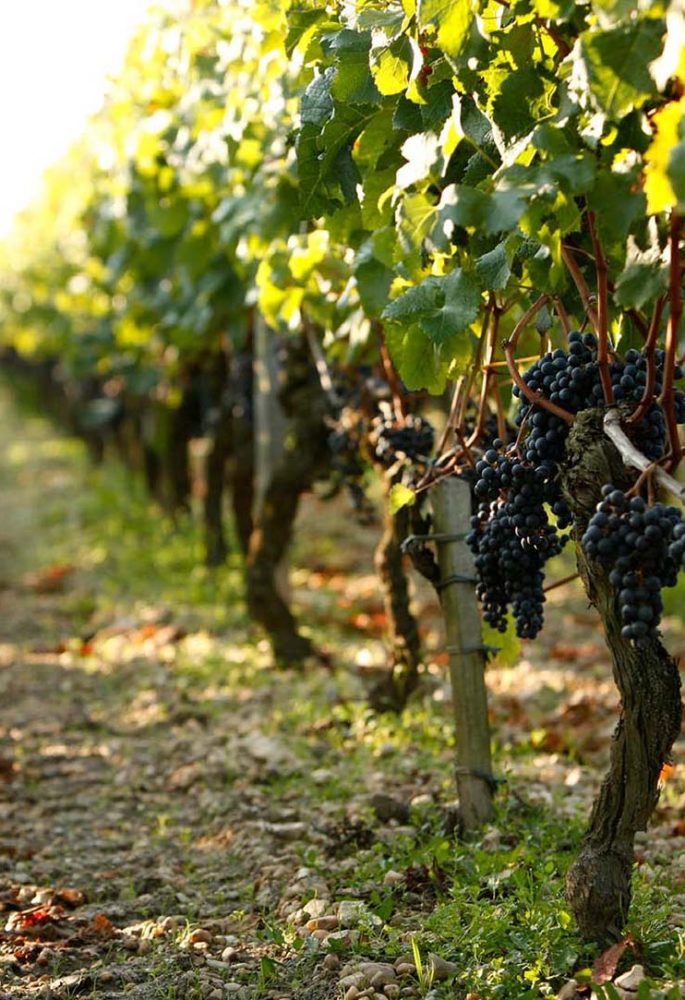
There are many factors that differentiate one vineyard from another and it is very important to know perfectly your own vineyards and soil, so that you can treat them accordingly, depending on their needs: every vineyard has its own time, its own slope, its own permeability etc.
The quality of the grape that arrives in our winery during the harvest is fundamental: from spring to autumn it is the climate that sets the rules. All we can do is follow the weather and decide what to do in the vineyard to give our vines the maximum attention and care and to make sure the buds grow as best as they can.
The work done in the cellar is very traditional, with particular attention to the experience handed down to us and using modern technology helps us preserve the high quality of the grapes.
Today, “organic” may seem like a market trend. However, for our winery “organic” means something very different. We started our organic grape growing back in 2001, and we obtained our first organic certification in 2004. This makes us one of the first organic wine producers.
In those days the word “organic” was used, but not in its correct context.
When our first organic wines came onto the market, the customers were hostile and not aware of what organic actually meant. We spent time and money in trying to spread the correct information and thanks to our efforts and also thanks to those who, like us, believed in our project, today anyone who is looking for an “organic” product is aware that it is possible to eat and drink at a high quality level of quality.
For us “organic” is a lifestyle, a way of life that all of our family shares. Our predilection has never been to follow trends but to aim at producing high quality wines, searching for authenticity, determined to make our wines a true reflection of ourselves, the area in which we live, with respect to our flora and fauna. Our ecosystem needs people like us that work with nature and respect it.
In organic wine making, we also talk about the use of sulfites. In certified organic wines, a reduced level of sulfites is guaranteed. It is by now evident that this chemical was abused in the past and that one can easily have a sulfite level below 100 mg/l without any risk on the ageing and longevity of the wine. Using excess sulfites in the bottle can typically cause headache, itching and blushing, showing that the wine is not well accepted by our body. For some people there is an “intolerance” to wine and in this case there are wines with no added sulfites, and these are classified as natural wines.
In 2015 we too produced a natural wine: Dolcetto d’Alba d.o.c. as a personal experiment. Then we asked some of our loyal customers their thoughts, and they found it of great interest. In fact, this is one of our projects that we will continue with great passion.
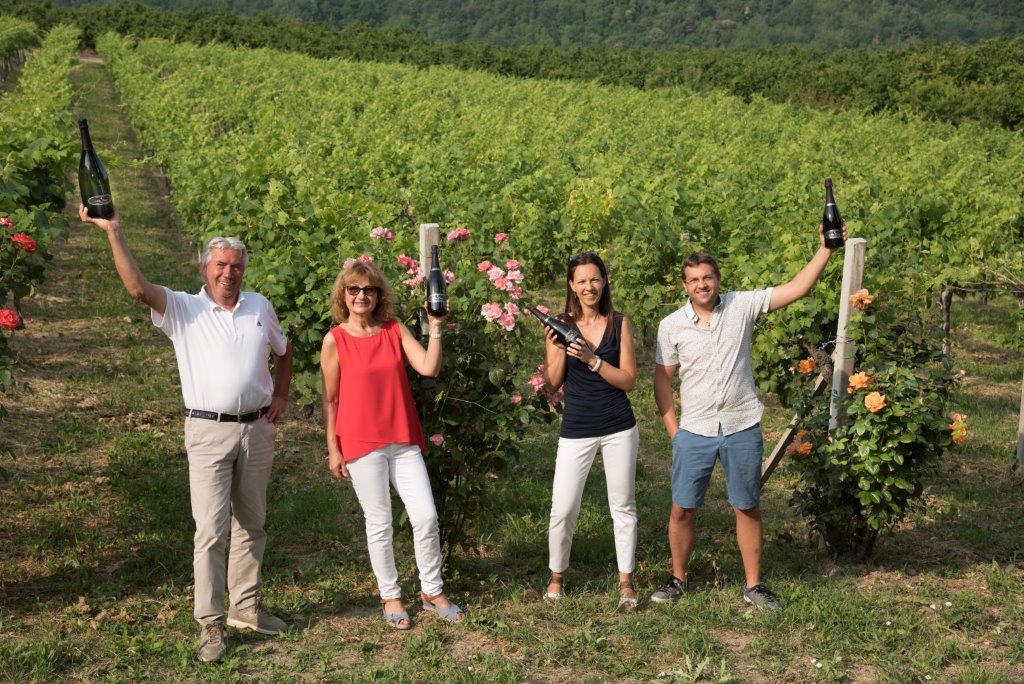
Thank You to everyone for having visited our Vini Giribaldi stand at Vinitaly 2025
Thank You to everyone for having visited our Vini Giribaldi stand at Vinitaly 2025